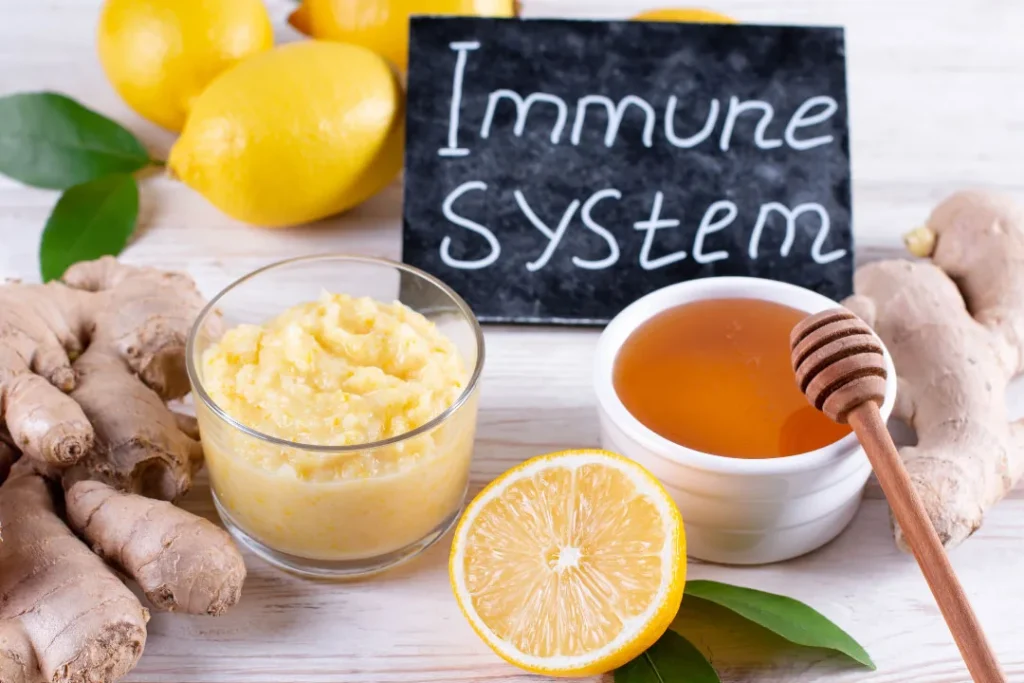Gelatin has a long history and is a frequently overlooked ingredient in both the culinary and medicinal industries. Gelatin is a physiologically relevant substance formed from collagen that has a variety of biological functions and offers major health advantages. In order to give readers a thorough understanding of Gelatin as a nutritional supplement, this in-depth analysis examines the chemistry and nature of Gelatin as well as its health advantages, ideal dose, potential adverse effects, and interactions.
You May Also Like:
5 Great Nootropic Herbs for Energy, Focus, and Productivity
A Nootropic Herb for Cognitive Enhancement: Discover Bacopa Monnieri Benefits and Side Effects
Gelatin: Benefits, Dosage, Side Effects, Drug Interactions, and Other Important Information is an original (NootropicsPlanet) article.
The Nature of Gelatin
Collagen is a crucial structural protein that is abundantly present in many animal tissues, including skin, bones, and connective tissues. Collagen is converted into the protein Gelatin by partial hydrolysis. In the presence of water, collagen is heated or treated by enzymes to produce Gelatin. This technique produces water-soluble proteins that are mostly made up of polypeptide chains with lengths between 50 and 1000 amino acids. Gelatin has a distinctive amino acid profile, containing large quantities of glycine, proline, and hydroxyproline.
Notably, Gelatin’s distinct physical and chemical characteristics are caused by its distinct makeup. The fact that Gelatin can create thermally reversible gels is what makes it so popular in the food sector. Gelatin’s versatility is further demonstrated by its stabilizing properties as well as its use as an excipient in medicinal compositions.
Health Benefits of Gelatin
- Skin Health: Gelatin’s abundance of glycine and proline supports natural collagen formation, which is essential for preserving skin’s suppleness and moisture. Clinical investigations have proven a link between regular Gelatin consumption and increased skin suppleness, potentially reducing the effects of aging.
- Gelatin’s abundance of amino acids like proline and glycine helps to maintain bone and joint health. According to relevant studies, taking Gelatin supplements may help with osteoarthritis and osteoporosis symptoms by increasing production of collagen, which is essential for maintaining the health of the bones and joints.

Chemistry of Gelatin
Collagen is a basic protein that is present in virtually all animal tissues, most notably skin, bones, and connective tissues. Controlled partial hydrolysis of collagen results in Gelatin. Collagen is broken down into smaller protein pieces during the hydrolysis process, which uses either heat or enzymatic treatment in the presence of water to produce Gelatin.
The resulting Gelatin created via this process is made up of polypeptide chains. Glycine, proline, and hydroxyproline are the main amino acids present in Gelatin. Gelatin has the unique capacity to create thermally reversible gels, which is by far its most notable quality, arguably.
Physiological Mechanisms of Action
Readers and potential consumers with understanding of the physiological mechanisms of action of Gelatin will possess a crucial vantage point that better allows for fully appreciating its potential health benefits and roles played within the body.
- Collagen Synthesis: The presence of collagen can be stimulated by Gelatin’s abundance of proline and glycine, two amino acids that are essential for the production of collagen. In light of collagen making up a substantial portion of the tissues in the skin, joints, and bones, this is very advantageous for these tissues’ health.
- Digestive System: Gelatin may create a barrier throughout the digestive system, which helps to maintain gut health, thereby giving Gelatin the capacity to draw digestive fluids to the top of heated food.
- Neurological Function: An inhibitory neurotransmitter called glycine, which is present in high concentrations, may help with mood control, sleep quality, and cognitive function.
- Immune System Control: The amino acid makeup of Gelatin can help regulate and maintain a strong immune system. Gelatin contains anti-inflammatory properties because of glycine and has cytoprotective effects on the body, too.

Optimal Dosage of Gelatin
Gelatin has a wide range of applications and health advantages, making it difficult to determine the ideal dosage without knowing the target health objective. A dose of 5–10 grams per day is frequently advised by nutritionists for maintaining overall health. However, greater doses, in the range of 10–20 grams per day, may be advised for those of you because of more focused advantages like skin health or joint support. For the purpose of determining an ideal and unique dose, speaking with a healthcare expert is essential.
Side Effects of Gelatin
Gelatin is often seen by experts and consumers alike to be safe for the majority of people to consume when taken orally; however, some people may have adverse effects such as heartburn, bloating, and allergic responses as well as feelings of stomach heaviness. Typically minor, these side effects go away on their own rather frequently. If they appear and do not disperse, please conference with a health care provider immediately.

Potential Substance Interactions with Gelatin
As of right now, Gelatin is known to have no major interactions with other drugs. However, you are advised to speak with a healthcare professional before beginning a program using Gelatin, especially for those of you taking other supplements or drugs, due to the possibility of individual variability and the constantly developing nature of nutritional research.
Responsible Uses of Gelatin
Numerous health advantages may be obtained from include Gelatin in a balanced diet, but it’s important to utilize it wisely. As with any dietary supplement, Gelatin should be used in addition to a balanced diet that includes a variety of foods. To ensure the best usage of this dietary supplement, a healthcare professional can offer tailored recommendations.

Gelatin:
Conclusion
Perceptions of Gelatin by the scientific and medical communities are changing. Ongoing research continues to provide evidence of Gelatin’s potential healing properties. Among other elements of Gelatin, collagen is a significant factor in Gelatin’s capacity to improve your health. Water is also a key factor in Gelatin’s success in combating problems involving bones, joints, skin, immunity, digestion, and more. Why not continue to research and make an informed choice as to whether you’d like to ingest Gelatin for health benefits? Hopefully, this article served as a helpful part of your journey to better health.
References:
- “A Review of the Effects of Collagen Treatment in Clinical Studies.” Retrieved from: https://www.ncbi.nlm.nih.gov/pmc/articles/PMC8620403/
- “What is Gelatin Good For? Benefits, Uses and More.” Retrieved from: https://www.healthline.com/nutrition/Gelatin-benefits
- “Glycine: The Muscle-Building, Brain-Boosting Amino Acid that Benefits the Entire Body.” Retrieved from: https://draxe.com/nutrition/glycine/
Important Note: The information contained in this article is for general informational purposes only, and should not be construed as health or medical advice, nor is it intended to diagnose, prevent, treat, or cure any disease or health condition. Before embarking on any diet, fitness regimen, or program of nutritional supplementation, it is advisable to consult your healthcare professional in order to determine its safety and probable efficacy in terms of your individual state of health.
Regarding Nutritional Supplements Or Other Non-Prescription Health Products: If any nutritional supplements or other non-prescription health products are mentioned in the foregoing article, any claims or statements made about them have not been evaluated by the U.S. Food and Drug Administration, and such nutritional supplements or other health products are not intended to diagnose, treat, cure, or prevent any disease.


